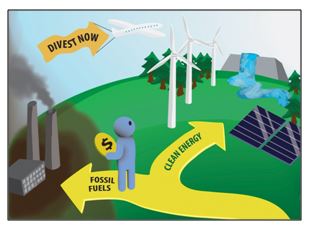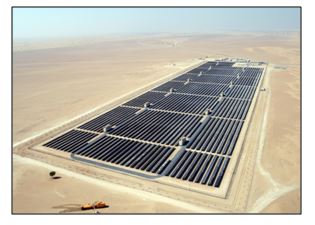Divestment is defined as the decision to voluntarily reduce one’s fossil fuel investments. Arguments for divestment have generally focused on the morality of investments, but recently the economic value of divestment has become a main consideration. Internationally, the growth of wind and solar energy generation has made divestment very attractive.

While falling prices for oil, natural gas, and coal over the past two years triggered dramatic downsizing in those industries, the renewable energy industry has been prospering. Investment in green energy broke new records in 2015 and is now experiencing twice as much global funding as fossil fuels. One reason for this occurrence is that renewable energy is becoming cheaper to produce in this current low cost oil environment. For example, in 2015 a solar project in Dubai produced and offered electricity more cheaply than that produced by natural gas at a rate of US$0.058 per kwH.

Government subsidies targeting renewable energy sources have boosted wind and solar energy in global power markets, but the real driving force for falling production costs of renewable are economies of scale. For example, the cost of solar power has fallen by 150 times its cost in the 1970s, while the total amount of installed solar has increased 115,000-fold worldwide.
According to the International Energy Agency (IEA) since 2000, the share of electricity produced by solar energy globally has increased 14 times over while wind energy has increased five times over during the same period. In relation to this, Bloomberg New Energy Finance (BNEF) has noted that each time global wind energy doubles, there is a 19% decrease in cost and each time global solar energy doubles, there is a 24% decrease in cost.
It should be noted, that this is the first time that solar and wind are beginning to compete head-to-head with fossil fuels on price and annual investment. Solar as a power generation source is likely to dominate in the future due to the fact that it is a technology rather than a fuel. Additionally the cost of the battery technology used for the storage of solar generated electricity has similarly been decreasing. Natural gas will still be required for power generation during times of low sun and wind generation but this may change with the advent of economical storage technologies.
Divestment opportunities exist globally based on the falling costs of renewable energy technologies over time. Generally however, the transition to renewable energy power generation is not occurring fast enough to stop global dependence on fossil fuels but, it is happening nonetheless.



